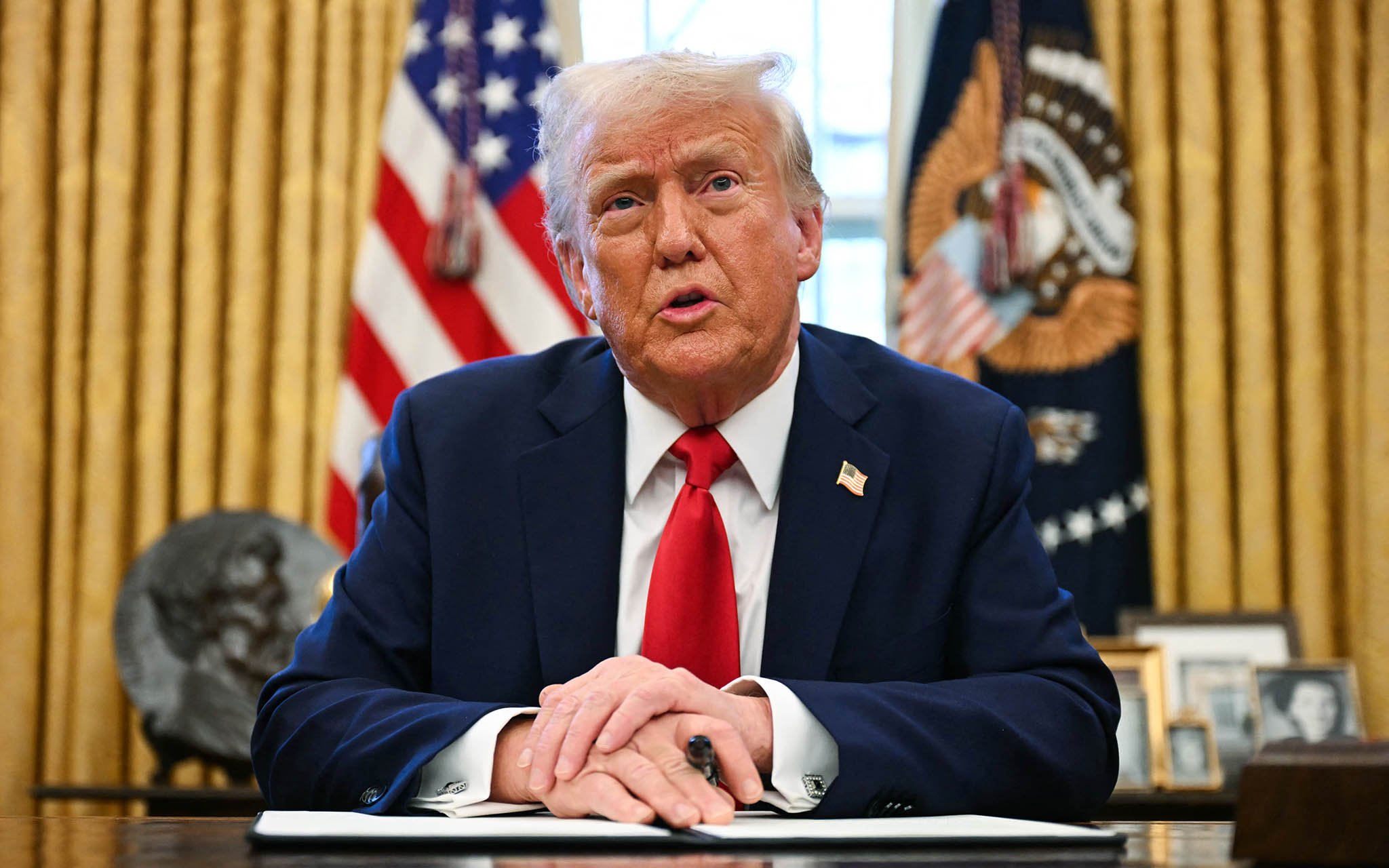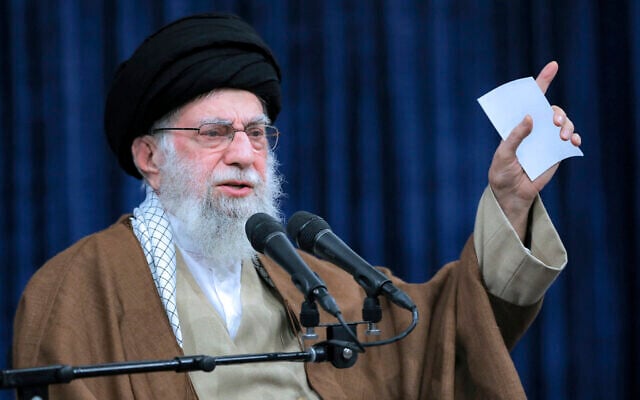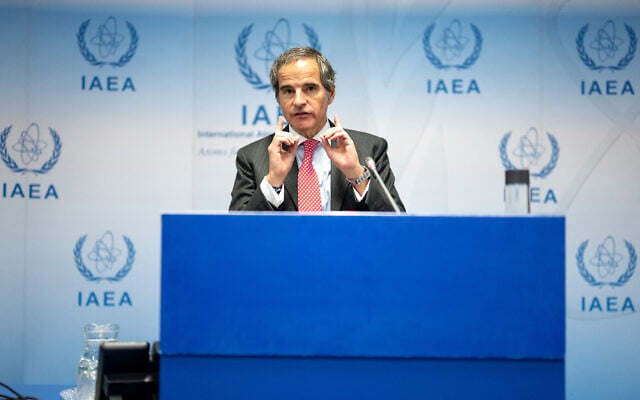



US President Donald Trump is expected to sign a presidential memorandum on Tuesday to restore his “maximum pressure” campaign on Iran to stop the country from getting a nuclear weapon and drive down its oil exports to zero, a US official said.
The move brings back the tough US policy on Iran that Trump practiced throughout his first term. Trump has accused his Democratic predecessor, former president Joe Biden, of weakening US resolve toward Iran.
The tougher approach came as Trump prepared to hold talks later on Tuesday with visiting Prime Minister Benjamin Netanyahu.
The official told Reuters that Trump’s directive orders the US Treasury secretary to impose “maximum economic pressure” on Iran, including sanctions and enforcement mechanisms on those violating existing sanctions.
As part of the maximum pressure effort, the Trump administration will implement a campaign “aimed at driving Iran’s oil exports to zero,” the official said.
Tehran’s oil exports brought in $53 billion in 2023, and $54 billion a year earlier, according to US Energy Information Administration estimates, and output during 2024 was running at its highest since 2018, based on OPEC data.
Iran’s mission to the United Nations in New York did not immediately respond to a request for comment.
The US ambassador to the United Nations will work with key allies to “complete the snapback of international sanctions and restrictions on Iran,” the official said.
Trump’s first-term maximum pressure campaign sought to use vigorous sanctions to strangle Iran’s economy and force the country to negotiate a deal that would hobble its nuclear and ballistic weapons programs.
The Biden administration did not materially loosen the sanctions that Trump put in place, but there is debate about how vigorously the sanctions were enforced.
Britain, France and Germany told the United Nations Security Council in December that they are ready, if necessary, to trigger a so-called “snap back” of all international sanctions on Iran to prevent the country from acquiring a nuclear weapon.
Iran’s UN Ambassador Amir Saeid Iravani has said that invoking the “snap back” of sanctions on Tehran would be “unlawful and counterproductive.”
European and Iranian diplomats met in November and January to discuss whether they can work to defuse regional tensions, including over Tehran’s nuclear program, before Trump returned to power.
At the World Economic Forum in Davos last month, UN nuclear watchdog chief Rafael Grossi said Iran has been “pressing the gas pedal” on its enrichment of uranium to near weapons grade.
Iran has denied wanting to develop a nuclear weapon. But Western intelligence agencies and the International Atomic Energy Agency say Iran had an organized military nuclear program up until 2003, and continued to develop its nuclear program beyond civilian necessity. Israel contends that the Islamic Republic never truly abandoned its nuclear weapons program.
The New York Times reported Monday that American intelligence indicates a covert team of Iranian scientists is exploring ways to quickly develop a nuclear weapon if the country’s leadership decides to pursue one.
The report said the information points to Iran seeking a shortcut to a bomb that would enable it to convert its uranium stocks into a weapon within months rather than years, if necessary, though a decision to race toward a bomb has not been made.
The paper said the intelligence was gathered in the final months of the Biden administration and shared with the new Trump administration.
It noted that with Iran’s power weakened by the blows to its proxy forces in the region and its failure to significantly hit Israel with its missile barrages, Tehran is anxious to find new ways to deter a strike by Israel or the US.
“US officials believe Iran has the know-how to make an older-style nuclear weapon, one that could be put together far faster than the more sophisticated designs Tehran has considered in the past,” the report said. “Such a weapon would not be able to be miniaturized to fit on a ballistic missile. It would also probably be far less reliable than any more modern weapon design… But such a crude weapon is the kind of device Iran could build quickly, test and declare to the world that it had become a nuclear power.”
Concerns have grown among Iran’s top decision-makers that Trump might empower Netanyahu to strike Iran’s nuclear sites.
Tehran’s foreign minister told Al Jazeera TV last week that Iran will respond immediately and decisively if its nuclear sites are attacked, which would lead to an “all-out war in the region.”
Israel and the US launching a military attack on Iranian nuclear facilities would be “one of the biggest historical mistakes the US could make,” Abbas Araghchi said.


